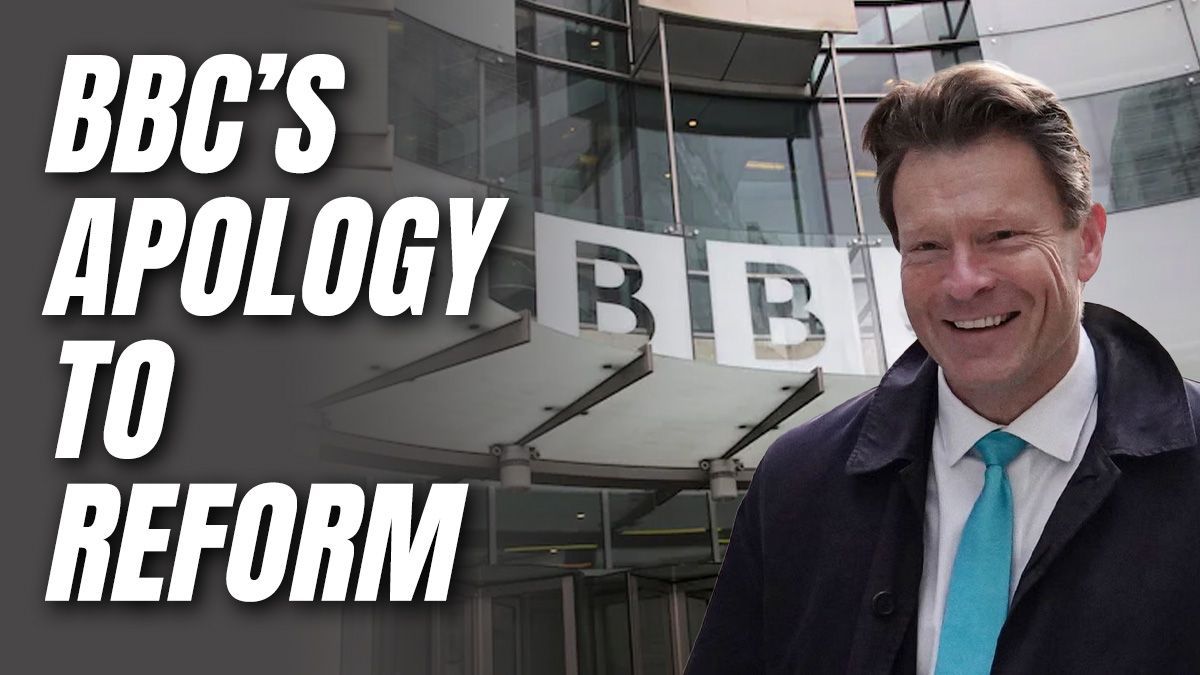Energy Policy Reform: Guido Fawkes On The New Course

Table of Contents
Guido Fawkes' Critique of Existing Energy Policy
Guido Fawkes has consistently been a vocal critic of the UK's previous energy policies, highlighting what he sees as fundamental flaws and ineffective strategies. His criticisms often center on an over-reliance on fossil fuels, a lack of sufficient investment in renewable energy infrastructure, and a failure to adequately address energy security concerns.
-
Inefficient Subsidies: Fawkes has highlighted inefficient subsidies directed towards outdated energy sources, arguing these funds could be better allocated to foster the growth of renewable energy technologies. He points to examples of continued support for fossil fuel industries despite their environmental impact and growing global shift away from them. This, he argues, represents a significant failure of past energy policy.
-
Slow Renewable Rollout: He's been critical of the slow pace of renewable energy infrastructure development, citing bureaucratic hurdles, lack of clear government support, and insufficient private investment as contributing factors. The consequences, he argues, are increased reliance on volatile global energy markets and missed opportunities for green job creation.
-
Energy Insecurity: Fawkes consistently raises concerns about the UK's energy security and its dependence on foreign suppliers, particularly for natural gas. This vulnerability, he argues, exposes the nation to geopolitical risks and price fluctuations, negatively impacting both household budgets and national economic stability. The lack of a robust energy independence strategy is a major point of contention for him.
-
Impact on Household Bills: A core element of Fawkes' criticism is the impact of ineffective energy strategies on household energy bills. He argues that the lack of foresight and strategic planning in energy policy has resulted in unnecessarily high costs for consumers, disproportionately affecting low-income households. This is a key aspect of what he terms "energy policy failures."
Key Aspects of the New Energy Policy Proposals
Fawkes has analyzed the newly proposed energy policy reforms, offering insights into their potential strengths and weaknesses. While his overall assessment remains to be fully revealed, his commentary suggests some key elements:
-
Increased Renewable Investment: The proposals include significantly increased investment in renewable energy sources such as solar, wind, and tidal power. This renewable energy transition, according to Fawkes' analysis, is crucial for achieving the UK's climate targets and reducing reliance on fossil fuels.
-
Modernizing the National Grid: The plans encompass the modernization of the national grid infrastructure to accommodate the influx of renewable energy sources. This involves investment in smart grid technologies and the development of advanced energy storage solutions to address the intermittent nature of renewable energy generation. This is integral to a successful renewable energy transition.
-
Energy Efficiency Measures: The proposed reforms emphasize energy efficiency measures to reduce overall energy consumption. Initiatives focusing on improving energy efficiency in buildings and promoting energy-saving technologies are central to the new strategy. This, Fawkes suggests, is a crucial aspect of an effective energy security strategy.
-
Energy Independence Strategy: The proposals include strategies aimed at enhancing the UK's energy independence. This involves not only increasing domestic renewable energy production but also exploring new energy sources and diversifying energy supply chains.
-
Tax Reforms: The new policy may incorporate tax reforms related to energy consumption, potentially shifting the tax burden away from green energy sources and towards those with higher carbon footprints. The details of these tax reforms remain a topic of ongoing discussion and analysis by Fawkes.
Potential Economic Impacts of the Reforms
Fawkes' analysis of the economic consequences of the proposed reforms includes both positive and negative aspects.
-
Green Job Creation: A significant potential benefit identified by Fawkes is the creation of green jobs within the renewable energy sector, including manufacturing, installation, maintenance, and research. This promises significant economic opportunities and a boost to regional economies.
-
Energy Price Volatility: The impact on energy prices for consumers and businesses is a key concern. While the transition to renewable energy could lead to long-term cost savings, there's potential for short-term price volatility during the implementation phase. This is something Fawkes consistently emphasizes in his analysis of the cost-benefit analysis of the reforms.
-
Investment Opportunities: The reforms present significant investment opportunities in green technologies, attracting both domestic and foreign investment. This could stimulate economic growth and innovation in the UK.
-
Government Subsidies and Incentives: The role of government subsidies and incentives in driving the transition to renewable energy is another key aspect of Fawkes' analysis. He acknowledges the need for appropriate levels of support, whilst stressing the importance of ensuring their effective utilization and avoiding wasteful spending.
-
Economic Benefits from Reduced Emissions: Fawkes notes the broader economic benefits stemming from reduced carbon emissions, including improvements in public health, reduced environmental damage, and enhanced international competitiveness. These long-term benefits, he argues, outweigh the potential short-term costs.
Addressing Public Concerns and Opposition
Fawkes acknowledges that the new energy policy faces potential challenges in securing public support.
-
Cost of Transition: A primary concern is the cost of the transition to a low-carbon energy system. This includes the upfront investment in new infrastructure and the potential for short-term increases in energy prices. Fawkes emphasizes the importance of transparent communication and effective cost-benefit analysis to address these concerns.
-
Impact on Specific Industries: The reforms could impact specific industries reliant on fossil fuels, necessitating strategies to manage the transition and support affected workers. Fawkes suggests retraining programs and investment in new industries as crucial mitigation strategies.
-
Environmental Impact Assessments: The environmental impact assessments of renewable energy projects are crucial to ensure their sustainability and minimize potential negative impacts. Fawkes stresses the need for rigorous assessments and effective mitigation strategies to address public concerns.
-
Public Skepticism: Addressing public skepticism about renewable energy technologies, such as concerns about their reliability and land use impacts, is essential for securing public acceptance of renewable energy. Fawkes highlights the need for better public education and transparent communication to dispel misconceptions and build trust.
Conclusion
Guido Fawkes' overall assessment of the new Energy Policy Reform is likely to be a nuanced one, balancing the potential benefits with the acknowledged challenges. While he has been highly critical of past energy policies, his analysis of the new proposals suggests a recognition of the necessity for a significant shift towards renewable energy sources. However, he will likely emphasize the crucial need for effective implementation, careful cost management, and transparent communication to secure public support and mitigate potential risks. The key challenges remain balancing the cost of the transition with long-term economic benefits, and addressing public concerns regarding energy prices and environmental impact. The opportunities, however, are significant: creating green jobs, enhancing energy security, and achieving crucial climate change targets.
Stay informed about the unfolding debate surrounding Energy Policy Reform and its potential impact on the UK. Follow Guido Fawkes and other relevant commentators to understand the nuances of this critical policy area. Engage in the conversation—your voice matters in shaping the future of Energy Policy Reform.

Featured Posts
-
 Should Nigel Farage Step Down The Case For Rupert Lowe Leading Reform
May 03, 2025
Should Nigel Farage Step Down The Case For Rupert Lowe Leading Reform
May 03, 2025 -
 Strong Winds In Oklahoma A Severe Weather Timeline
May 03, 2025
Strong Winds In Oklahoma A Severe Weather Timeline
May 03, 2025 -
 Glastonbury 2025 Secure Your Resale Tickets Now
May 03, 2025
Glastonbury 2025 Secure Your Resale Tickets Now
May 03, 2025 -
 Harnessing The Wind How Wind Powered Trains Can Reduce Pollution And Save Energy
May 03, 2025
Harnessing The Wind How Wind Powered Trains Can Reduce Pollution And Save Energy
May 03, 2025 -
 U S Army Drone Program A Massive Expansion
May 03, 2025
U S Army Drone Program A Massive Expansion
May 03, 2025
